Going through pregnancy, labour and delivery demands a lot from a woman - physically, mentally, emotionally, and spiritually.
From the time we see that double line on the pregnancy test, many women spend hundreds of hours finding the right antenatal care providers. We read all the books, ask all the questions, and buy or borrow all the things we think a newborn baby needs
By the way, they mainly just need you, your boobs if you're breastfeeding / bottle if not, and your body warmth.
What we often fail to prepare ourselves for is what comes after the baby is born:
the months (and in some cases years) we spend recovering from this massive life event.
Our recovery from childbirth. The all important but under-acknowledged postpartum. And the desperate need we have, both as individuals and as a society, to nourish the mother during this time more than any other.
Why nourish the mother?
Add to this the fact that our bodies are trying their hardest to heal any trauma experienced during labour and birth (tears, stitches, or possibly a caesarean section incision) and you have one sore, tired mama in desperate need of care and attention.
Unfortunately in Western society, once baby is born the spotlight usually switches from the pregnant mama to that very cute and exciting new bundle of joy. The focus lands on things like:
How well baby recovered from the birth.
Who baby looks like.
How well baby is growing.
How cute all those new outfits look on her or him.
In the excitement of welcoming a new little person into the world, the mother is often forgotten, at a time when she most needs help.
In a culture where independence is encouraged and celebrated, interdependence is a weird hippy concept, and dependence is flat-out frowned upon... many women expect too much of themselves when they most need nurturing.
They are scared to ask for help for fear of being a bother, or being seen as weak and incapable.
The result?
- Medical postpartum follow-ups that stop at six weeks, which sends the message that we should have fully recovered by then. We haven't.
- Relentless social isolation from being at home all day, every day with a demanding newborn who barely gives us time (nor spare hands) to feed ourselves or go to the toilet.
- Women whose pelvic floors never fully heal from lack of medical attention or returning to vigorous exercise too soon.
- Early cessation of breastfeeding due to lack of support or misinformation, or poor milk supply linked to eating too little and exercising too hard in a misguided attempt to "lose the baby weight" quickly.
- A surge in marriage breakups within 18 months of giving birth.
- All time high rates of postpartum depression.
This is in total opposition to what is routinely practised in many other parts of the world.
In most of Asia, the Middle East, Africa and Eastern Europe, the postpartum period is a time where the wellbeing of a new mother is placed at the top of the priority list, not the bottom.
The first forty days, the first three months (also known as the fourth trimester), or the period from childbirth up to a year in some cultures, is recognised as a time of amazing intensity and adjustment for new mothers where she is nurtured by her community so that she can reserve her precious energy for nurturing her baby.
That's right: for the days and weeks after childbirth, the new mother expects that she will be cared for by her village.
Grandmothers, mothers, mothers-in-law, sisters, husbands, uncles, aunties, cousins, older children, and friends band together to take care of the new mama.
They cook her nourishing meals. Clean the house. Take care of any other children. Make sure she has clean bedding and time to take a shower. Ensure that she has plenty of time to rest and bond with her new baby.
It seems like a fantasy unattainable for most Western women. Or is it?
My Two very different postpartum experiences
No longer do most of us have "the village" to take care of us. The village seems like an overly-romanticised relic from the distant past.
And even if we do have mothers, sisters and friends who could potentially help us, we are too afraid or stubborn to ask for their help. I speak from personal experience here.
Or we just don't consider that asking for help is even an option.
But ask for help we MUST.
During my first postpartum experience (following Archie's birth) I felt the silent but strong societal pressure to bounce back quickly. To get back to pre-pregnancy exercise as soon as possible. To reclaim my "old self" ASAP. To dive back into work and study. To take this motherhood thing in my stride. To do it all on my own.
This resulted in long lasting tendon injuries that eventually put me in a splint. It turned me off yoga. It exacerbated my sleep deprivation. It lead me to returning to work and study way too soon after childbirth, leading to frustration, exhaustion... and many painful blocked ducts and mastitis.
Luckily I have a loving husband who, for the first few weeks after birth, made me delicious meals and healing herbal elixirs (having a naturopath and herbalist as a husband has its perks!).
He made me take my supplements (which I'm notoriously bad at) and took the baby while I went out for runs in the bush. (P.S. running isn't the best exercise to do only weeks after giving birth, but you live and learn!)
But he was really the only support I got. And not for lack of offers from loving friends and family: I was just too stubborn and proud to accept help when it was offered, and I paid the price.
Second time around, I knew better.
Months before I was due, I completed my pre- and postnatal yoga teacher training so I finally learnt the safest, most nurturing ways to practise yoga at this special time. (Hint: handstands are NOT a priority!)
And most importantly, I organised for my mum to stay with us for 4 weeks after I had the baby. To help look after Archie who's now 2 and a firecracker. And to cook nourishing meals for me.
The bonus is that she's Chinese and she's an amazing cook. She brought an arsenal of healing TCM (Traditional Chinese Medicine) postpartum herbs to include in her cooking.
Preparing for my postpartum is easily one of the best decisions I've ever made in my life.
At three months postpartum I'm feeling replenished and nourished. I can honestly say that I'm feeling far stronger, more emotionally resilient and mentally stable than I was at this stage after having Archie. Sure, there are still bad nights (and days!) where Kairi doesn't sleep or wakes what seems like hundreds of times a night to feed.
But for the most part, I rocked this postpartum.
And when it comes to the birth of your next baby - be it your first, or your seventh - you can too.
The Golden MOnth
It's also known as Golden Month, which I reckon has a much comfier, looser feel to it :)
Traditionally confinement lasts for the first month after giving birth, but in modern China it is practised for anywhere between 21 and 40 days.
It is said that the way you care for yourself in your Golden Month has the power to impact on your health for the rest of your life. Whatever you think of that, it’s a good excuse to take excellent care of yourself.
During confinement women adhere (as much or as little as they want) to a set of guidelines designed to help them rest and regain strength after giving birth.
Traditionally these guidelines involved some pretty unappealing practices such as: not washing your hair or even showering for 40 days after giving birth; not being allowed to leave the house (to protect the mother from the devitalising effects of the wind element); eating copious amounts of animal kidneys to restore her jing (essence); and feasting on gelatin-rich pig trotter stew.
For most modern women - and especially for this bushwalking aficionado who gave birth in the height of summer - rules forbidding bathing, or leaving the house for a bit of fresh air are neither appealing nor practical!
And it takes a brave woman - and a well stocked butcher - to try pig trotter stew.
But the potential benefits of confinement - better healing and physical recovery, superior mental health outcomes, optimal bonding with baby, and laying a foundation of good health for the future - were too good to resist.
So I ended up taking a few key elements from the Traditional Chinese Golden Month, and modernising them.
Here are the three big essentials that helped me come out the other side of my Golden Month strong, nourished, and ready to take on the much longer road ahead that is parenting two small kids!
1. Eat like a grown-ass woman.
That you've read this far tells me you probably know that food is a potent method of healing the body. Good nutrition in the postpartum period can make a massive difference to a new mum's ability to recover well.
Nutritional requirements during recovery and breastfeeding unsurprisingly increase, and in the case of some specific nutrients, quite significantly so.
There are three big things to remember when it comes to nourishing your postpartum self with food. Those things are:
- Warmth: Food is said to have a warm, hot, cool, or cold nature in Chinese medicine. Eating foods that are cooked, warming, and easy to digest is a postpartum tenet from most traditional cultures. Eating warm foods basically means you extract more nutrients from your food at a time when your energy reserves are depleted. Warm-natured food helps to support digestion and blood circulation, strengthen qi and keep your body temperature warm. After birth the body is said to be in a state of relative qi deficiency, necessitating the need for warm foods.
- Quality: Eating nutrient dense foods, including all the macronutrients and the right micronutrients. This means lots of colourful produce, complex carbohydrates for fibre and energy, biologically available protein, healthy fats... and yes, liver. Bone broth is also a biggie in helping to repair connective tissue trauma from birth.
- Quantity: Eating ENOUGH food. This is where you need to put your big girl pants on, ignore the ridiculous cultural push to lose the "baby weight" as fast as possible by restricting calories and other crazy dieting behaviours... and eat like a grown-ass woman.
The topic of postpartum nutrition is so important I decided to make it a blog all on its lonesome, which you can find here.
2. Forget the fucking laundry, and REST.
Rest is HUGE. Once a new baby arrives, your whole world is turned upside down. If you haven't already tasted the *joys* of extreme fatigue, you will soon discover why sleep deprivation was used as a form of torture during world wars past.
It's all well and good to "just sleep when the baby sleeps" as everyone seems to suggest. But this is usually the only time new mums have to eat, go to the toilet, and catch up on housework.
Ugh, how depressing is that last one? "Catch up" on housework; it conjures up an image of a sad woman in an apron bent over frantically scrubbing the stove before her husband gets home expecting dinner.
So many women spend their precious infant's nap time doing laundry. Doing fucking laundry.
When you're being woken up to 10 times a night by a tiny baby for feeds and cuddles, the last thing you should be worrying yourself with is doing the fucking laundry. You are going to need to get as much sleep as you can get, when and where you can get it. Laundry belongs, well, at the bottom of the laundry list (crickets chirping).
This time around I tried very hard to outsource as many household activities as possible so that I could just focus on bonding with and feeding my newborn, and of course sleeping. Things like cleaning, driving to the shops to get food, cooking food, doing laundry were all things other people could do, while I did the bloody important job of helping a newborn adjust to and survive in a wildly new and alien world.
The importance of rest cannot be understated. The last thing you are going to feel like doing whilst trying to learn how to latch a hungry newborn onto your swollen, sore breast is the pile of dirty laundry on the floor.
You could get your partner to step up and do more work around the house.
You could hire a postpartum doula, a cook, a babysitter to help look after your older children, or even a cleaner...
Or you could get your mum - who is practically all those things in one - to live with you for a month so she can do this stuff for you. Which is exactly what I did.
Inviting my mum to come and look after me for a month after giving birth was the last thing on my mind after having my first child.
To be brutally honest, I just didn't have a close enough relationship with my mum to do so. I couldn't spend more than 4 or 5 days with her without having a massive fight, and I'm talking ripping-eachother's-hearts-out fight. Sad, but true - and I doubt I'm alone.
This time around I arranged for my mum to come a few weeks after the birth to live in with us and help with cooking, cleaning and babysitting my toddler. Sounds like a recipe for disaster given our history - but it was actually incredible.
I feel closer to her now than ever before. And we didn't fight the entire time.
Of course I had to do some serious inside work to get to a stage of healing with my mum so that we could live together for a month without wanting to kill each other. I spent a couple of months before I was due doing some life-changing women's work as part of a course I will talk more about in later posts.
This work involved radically transforming my own mother-daughter relationship and my ancestral motherline. The work is by Lhamo Lotscher and you can access her upcoming course here. Please know that I may receive an affiliate payment from this program if you purchase the program through this link. If you want to know more about it feel free to email me, but it's way too much to put down here.
So in short - for that first month, rest. Rest, and rest some more. Stay in bed with your little one. It's not easy, especially for the perfectionists and overachievers amongst us (um, isn't that all of us?)
But find a way to at least minimise the amount of housework and other crap you have to do, even if just for the first week or two. It's so worth it. For how you will feel at the end of that month, it's so thoroughly worth it.
3. Get to know your Postpartum herbal Friends
In TCM the ingredients and herbs that are used liberally in the warming stews, soups and broths fed to the new mum have a few important actions:
- To aid repair of damaged tissues from birth trauma
- To generate new blood and replace minerals lost in childbirth
- To help release any placental fragments within the uterus, and support discharge of lochia (preventing blood stasis, or congealed, old blood being "stuck" inside the womb)
- To contract and restore the expanded uterus, and alleviate painful postpartum uterine contractions
- To warm the mother, both physically and from an energetic standpoint. In TCM, foods and herbs with a warm quality counteract the cool or cold condition of the mother immediately following childbirth and help circulate qi
- To help the mother adapt to the many stresses of looking after a newborn (think adaptogenic herbs).
Warming culinary herbs that you can emphasise using more of in your everyday postpartum meals include:
- Cinnamon (Cinnamomum verum) - an amazing carminative for soothing upset tummies, this is delicious in porridge or even chuck a scroll into a Chinese stirfry for a rich, sweet flavour.
- Star anise (Illicium verum) - much like cinnamon, this warming spice adds depth to fruit compotes and can also be thrown into stirfries for flavour.
- Ginger (Zingiber officinale) - an absolute must in every postpartum healing regime, ginger has historically been used as a diaphoretic (a substance known to induce sweating, thus increasing circulation and heat). Grate it fresh into hot water and add honey for a virus-fighting tea, or slice it and add to soups, stirfries and rice.
- Garlic (Allium sativum) - what doesn't garlic go with? Besides dessert perhaps... Be generous with the garlic. Crush it raw into salad dressings, add it to chicken soup (a staple in confinement for new mums), and eat it with pretty much any cooked dish.
- Chilli or cayenne (Capsicum annuum) - I love chilli and love to slice it up finely and add to any Asian dish. Just don't go overboard with chilli as it has more of a hot quality than a warm one. it can also make some babies colicky if you're breastfeeding. That said my babies have never had issues with it.
- Rosemary, oregano, basil - hello spaghetti and pizza. These Italian herbs are warming and delicious in so many dishes.
There are also some specific, lesser known herbs that in TCM are a boon to new mothers during the Golden Month. Having been through my first postpartum without using Chinese herbs extensively, I have no doubt that using herbs in this postpartum recovery made a huge difference in how strong I feel now, three months after giving birth.
I personally tailor made for myself a 30-day postpartum meal plan that included particular amounts of Chinese herbs at certain stages of my postpartum recovery. I did this using my understanding of herbal medicine as a 3rd year naturopathy student, some pointed research, and my mum's Chinese medicine wisdom which was garnered from watching her own mum home birth eight children in very humble conditions. My aunt Ju-See in Malaysia who is something of an expert in Chinese herbalism is also to thank.
I don't recommend buying a bunch of herbs and trying this yourself unless you have some knowledge and experience with TCM herbs. These herbs are very powerful and must be treated with respect.
**Please note that the use of these herbs is strictly for postpartum use and some of these are contraindicated in pregnancy.**
It's best to consult an experienced naturopath, herbalist or TCM practitioner before using these in your postpartum to ensure they are going to have the desired effect for you, and you are taking the right dose. That said, I've mentioned a few ways you can use low doses of some of these in everyday dishes to get their benefits.
- Astragalus root (Astragalus membranaceus) or huang qi is a warming adaptogen and immune modulator. I add astragalus to soups, about 10 grams to a big pot of chicken broth.
- Shiitake mushrooms (Lentinula edodes) - antioxidant and immune modulators. I add a handful of sliced, dried shiitake to a big pot of soup, or soak in hot water for 10 minutes then and add to stir-fries for serious flavour and of course for their immune boosting activity!
- Angelica root (Angelica sinensis) or dong quai - known as female ginseng, dong quai is warming, improves blood circulation, nourishes the blood and strengthens the female reproductive organs.
- Spiny jujube fruit (Zizyphus spinosa) or hong zao
- Codonopsis root (Codonopsis pilosula) or dang shen
- Motherwort (Leonurus cardiaca) or yi mu cao
- Szechuan Lovage (Ligusticum wallichii) or chuan xiong - promotes blood and qi circulation, chuan xiong assists dong quai in contracting and aiding recovery of the uterus.
- Nettle leaf (Urtica dioica) - whilst not strictly a TCM herb, this is a nutritive herb (high in iron), rejuvenator, and overall tonic. Susan Weed, one of the great modern herbalists and women’s health advocate, strongly recommends nettles for all aspects of motherhood. I make herbal infusion of nettle by adding a few tablespoons of dried herb to a teapot and steeping overnight in boiling water. The next day I strain and sip throughout the day instead of drinking plain water.
New Mama's Chicken Soup
1 kg organic chicken - whole or parts
3 litres filtered water
1 medium onion, chopped
2 large carrots, chopped
3 celery sticks, chopped
2 teaspoons sea salt
1 teaspoon white pepper
30 grams Dong quai (Chinese Angelica root)
3cm piece of ginger, peeled and finely sliced
Garlic cloves (as many as you like), crushed and roughly chopped
Rinse chicken and add to water in a heavy stockpot with the dong quai. Bring to the boil. Simmer for 1 hour.
Remove chicken from broth and shred the meat into small pieces. If you don't want to fish the dong quai out of your bowl of soup when eating, you can strain the broth through a sieve and pour back the soup into stockpot along with the shredded chicken, however I usually leave it all in because I'm lazy and don't mind chewing on it in my soup.
Add the onion, celery, carrot, ginger, garlic, salt and pepper. Bring to a boil, cover and reduce heat. Simmer for 20 minutes more then turn off heat and serve with sliced spring onions and soy sauce if you like.
So there you have it - my top three Golden Month practices. I haven't mentioned yoga, meditation, or gentle exercise because, a) not many new mums have shitloads of time for that, and b) this post is already too long. Those are fantastic practices to eventually get back into the swing of, however, and I'll write about them in my upcoming blog about the fourth trimester.
Questions or comments? Chuck them in the comment box below. I may take a while to reply, but I will eventually reply!
Love, Casey x
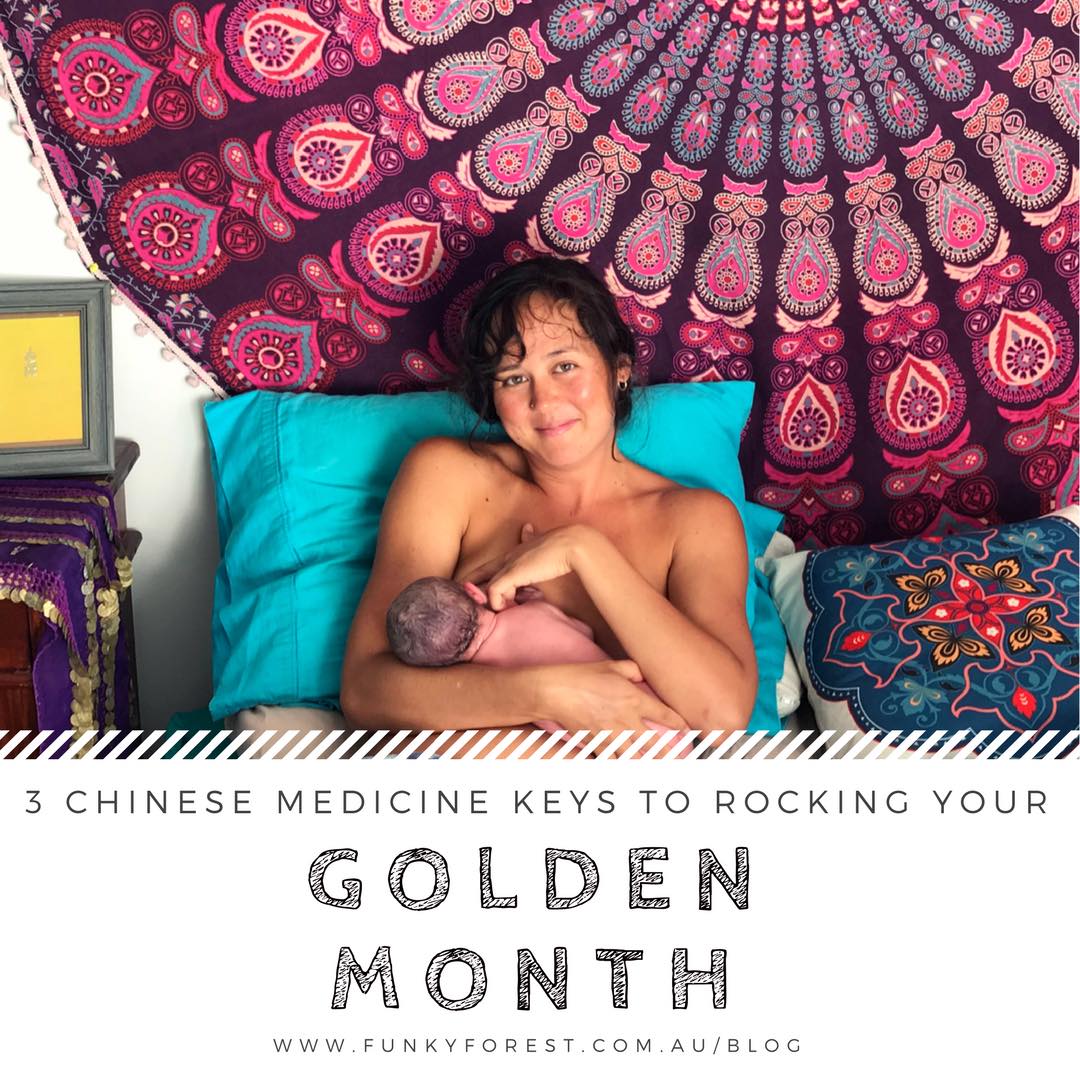
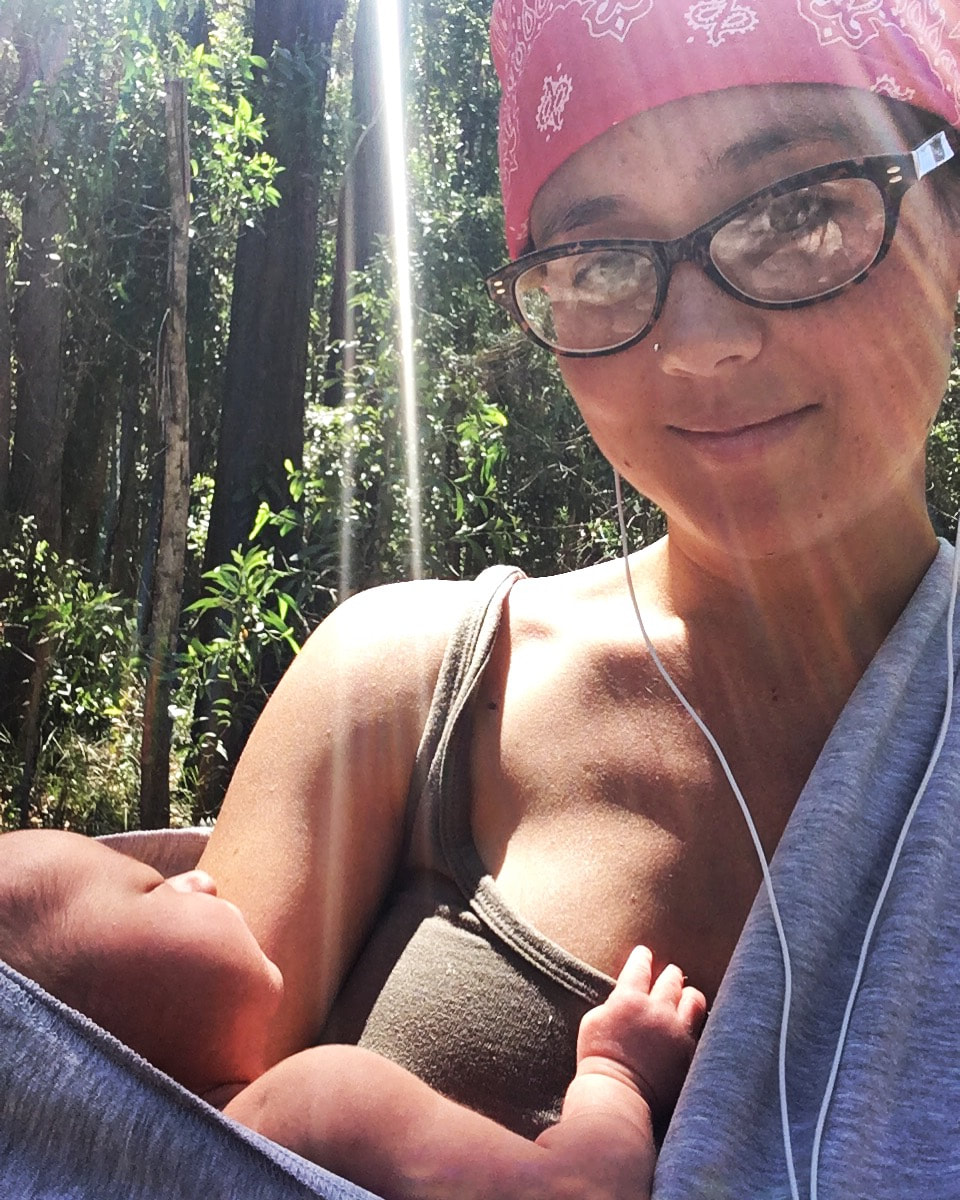
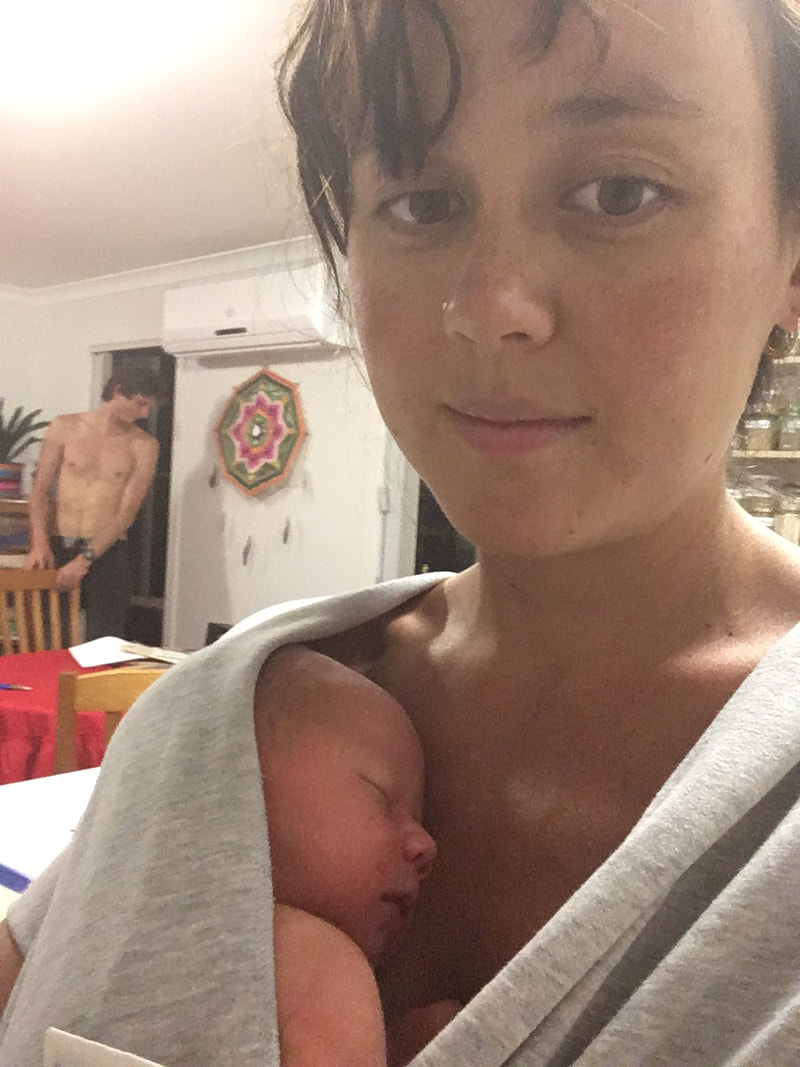
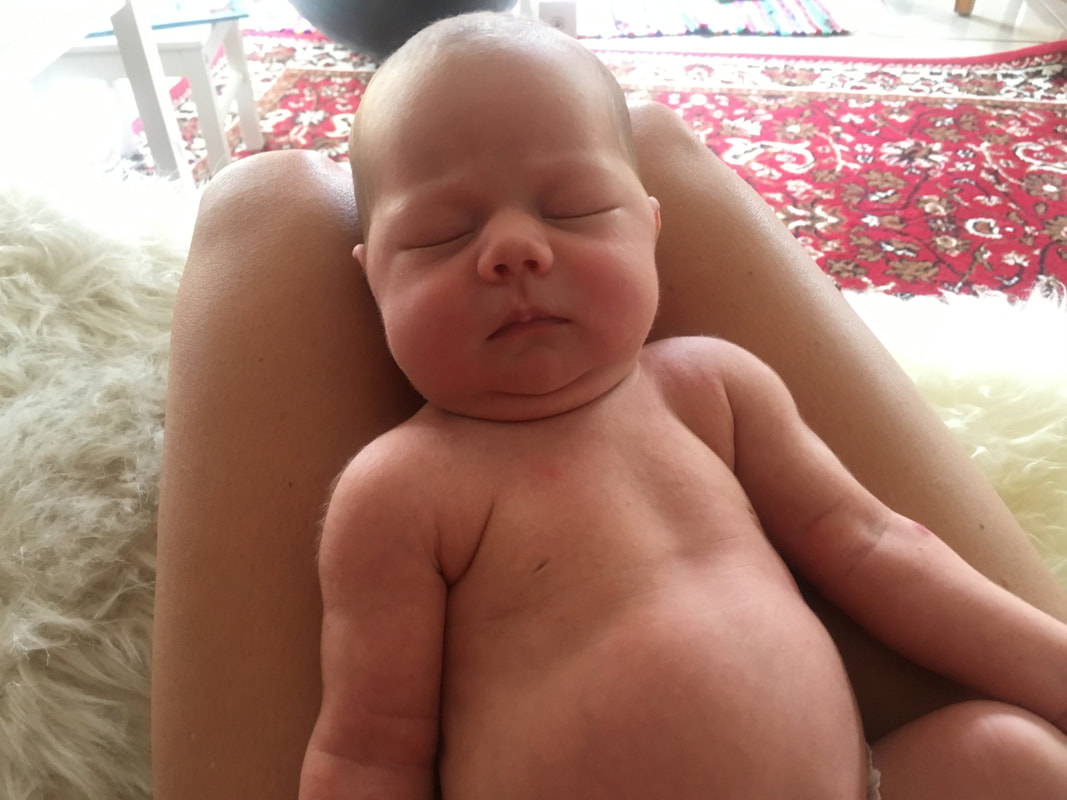
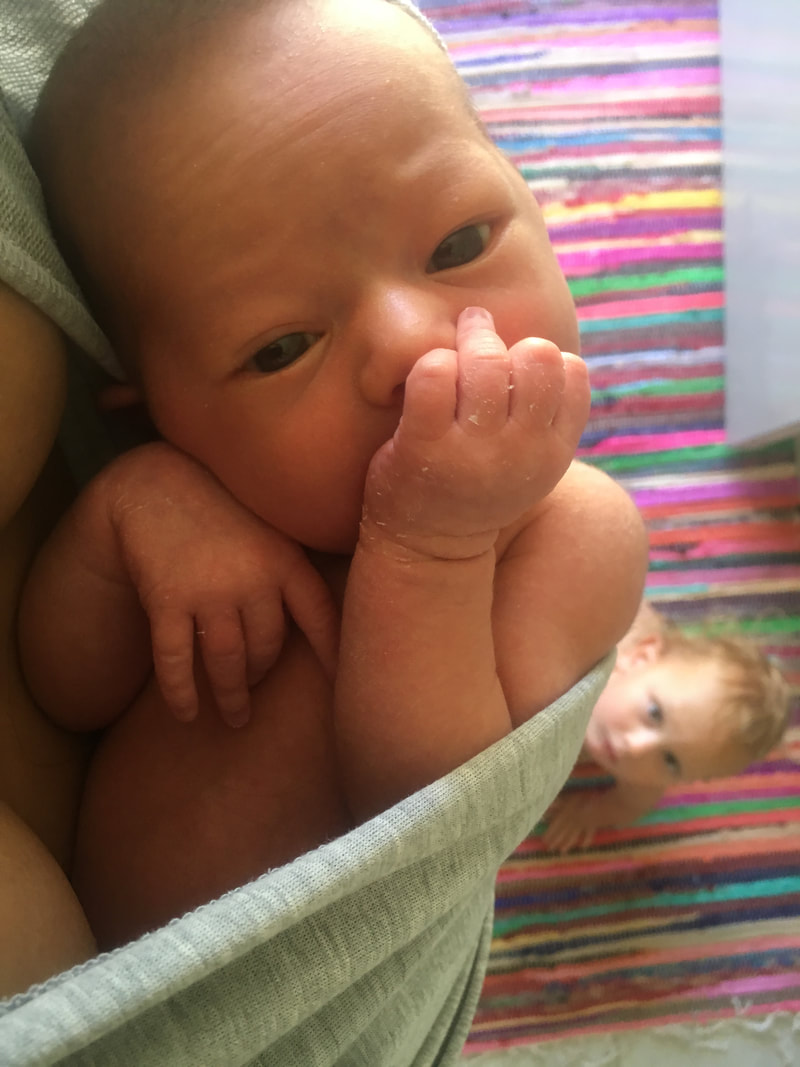



































 RSS Feed
RSS Feed



